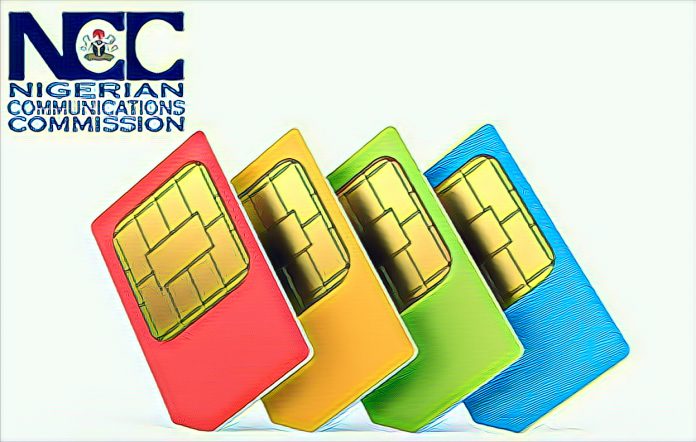In a decisive move to fortify the integrity of Nigeria’s telecommunications sector, the Nigerian Communications Commission (NCC) has confirmed that subscribers holding four or more SIM cards with registration data inconsistent with their National Identity Number (NIN) will face a service bar starting Friday. This action underlines the NCC’s steadfast commitment to cleanse the nation’s SIM registration records, aiming to thwart criminals’ ability to exploit multiple unregistered SIMs for illicit purposes.
The decision, which remains unaltered despite appeals from telecommunications companies for an extension, was reached during a critical meeting held by the Commission’s management on Thursday. This meeting was convened to deliberate on the telcos’ requests for more time to verify the NINs submitted by their subscribers. The refusal to postpone the deadline underscores the urgency with which the NCC views the matter of SIM card ownership verification and the broader implications for national security and order.
A senior official from the Commission shared insights into the rationale behind this stringent measure, highlighting the disturbing findings of the NCC’s investigations into SIM card registrations. The inquiry uncovered extreme cases where individuals possessed thousands of SIM cards linked to a single NIN, raising serious concerns about the intended use of such vast numbers of telecommunications lines. The official emphasized that the purpose behind amassing such a large number of SIM cards could not be justified as legitimate by any means, suggesting misuse far removed from acceptable telecommunications practices.
To mitigate the impact on subscribers whose NIN verification failed due to biometric discrepancies, the Commission is considering the introduction of an online application. This platform would enable Mobile Network Operators (MNOs) to facilitate the updating of subscriber records directly, ensuring compliance while minimizing disruption to service access. Additionally, this digital solution would allow for the registration of new lines, provided they adhere to the regulatory requirements set forth by the NCC.
The “Max-4 Rule,” instituted by the Federal Government in April 2021, plays a crucial role in this regulatory overhaul. This rule restricts telecom subscribers to a maximum of four lines per mobile network operator, a policy designed to simplify the management of SIM registrations and enhance the accountability of telecommunications usage across the country.
Furthermore, the NCC has extended a grace period until July 31, 2024, for MNOs to verify all submitted NINs for subscribers with four or fewer SIMs. This extension offers a reprieve for those at risk of non-compliance, ensuring ample opportunity for verification processes to be completed. Subscribers who fail this verification will inevitably face service restrictions, aligning with the NCC’s broader strategy to secure the telecommunications infrastructure against misuse.
This regulatory tightening is a clear reflection of the NCC’s broader agenda to establish a more secure and transparent telecommunications environment in Nigeria. By enforcing stricter SIM card ownership rules, the Commission aims to eliminate the potential for criminal activities facilitated through anonymous or improperly registered telecommunications lines. The initiative not only enhances national security but also reinforces the importance of digital identity verification as a cornerstone of modern governance and law enforcement.
As the deadline approaches, the message to Nigerian telecom subscribers is unequivocal: compliance with the NIN verification requirement is mandatory. The move towards a cleaner, more accountable SIM card registration database is a critical step in safeguarding the public against the risks associated with digital anonymity and telecommunications fraud. Through these measures, the NCC seeks to foster a safer, more reliable telecommunications sector that serves the interests of national security and public welfare alike.



